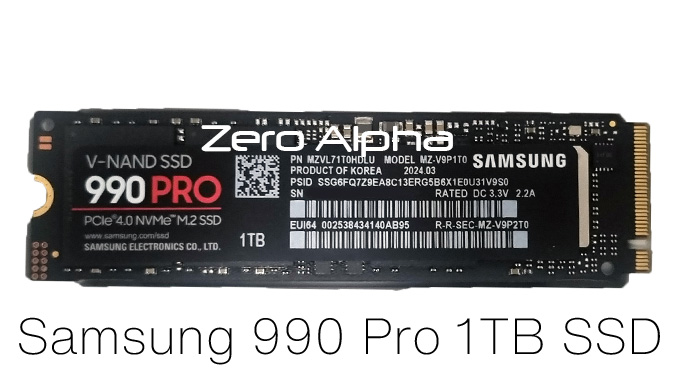Samsung 990 1TB M.2 SSD MZ-V9P1T0 Data Recovery
Zero Alpha Data Recovery provide advanced skills to recover data from Samsung 990 1TB M.2 SSD MZ-V9P1T0. The Samsung 990 1TB M.2 SSD MZ-V9P1T0 is renowned for its impressive performance and reliability, making it a popular choice for both gaming enthusiasts and professionals requiring high-speed data transfer and storage solutions. This SSD boasts advanced features, including PCIe 4.0 support, offering significantly faster read and write speeds compared to its predecessors. Its thermal control algorithm ensures efficient heat management, contributing to its consistent performance under heavy workloads. However, despite its many strengths, some common problems have been reported by users.

Common Problems with the Samsung 990 1TB M.2 SSD MZ-V9P1T0
Despite its reputation for high performance and reliability, the Samsung 990 1TB M.2 SSD (MZ-V9P1T0) can encounter several issues. Here are the most common problems and potential solutions:
-
Firmware Issues:
- Symptoms: Suboptimal performance or compatibility issues with certain motherboards.
- Solution: Regularly check for and install firmware updates from Samsung to ensure compatibility and performance enhancements.
-
Recognition Problems:
- Symptoms: SSD not being recognized by the system.
- Solution: Ensure the latest BIOS version is installed on your motherboard. If the problem persists, a firmware update for the SSD may be necessary.
-
Thermal Throttling:
- Symptoms: Reduced performance under sustained heavy loads.
- Solution: Improve your system's cooling solutions, such as installing additional fans or a heatsink specifically designed for M.2 SSDs.
-
NAND Cell Degradation:
- Symptoms: Decreased lifespan and performance over time due to continuous high-volume read/write cycles.
- Solution: Monitor your SSD's health using software tools, avoid excessive write cycles, and back up important data regularly.
By addressing these common issues, users can maximize the lifespan and performance of their Samsung 990 1TB M.2 SSD, ensuring a smoother and more reliable computing experience.